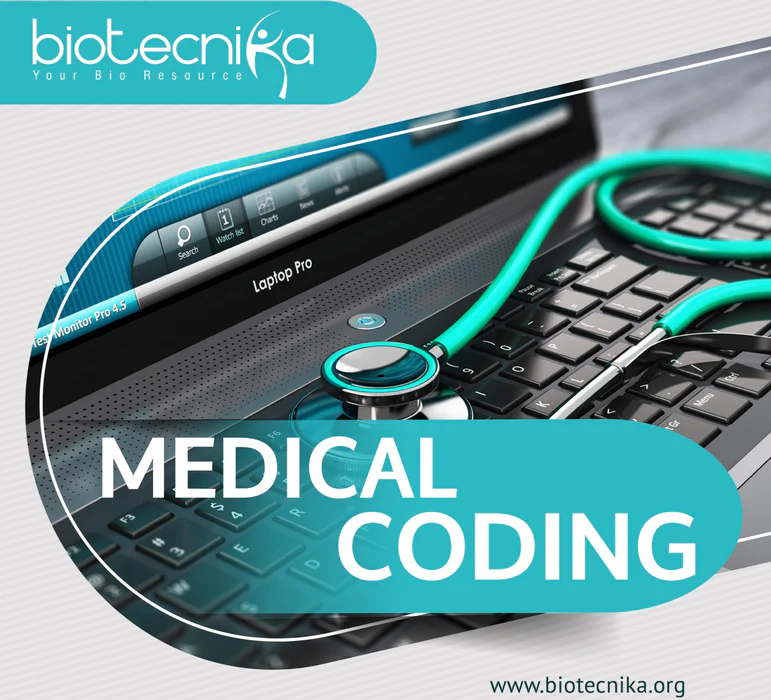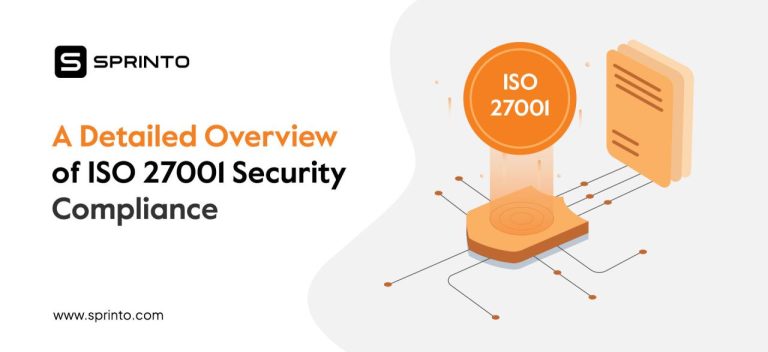Online Medical Coding Classes with Financial Aid
Online medical coding classes with financial aid offer a fantastic opportunity for aspiring medical coders. Learning medical coding online is increasingly popular due to its flexibility and accessibility. This guide explores the various online courses available, the financial aid programs you can access, and crucial factors to consider in your journey to becoming a certified medical coder.
This comprehensive resource dives deep into the world of online medical coding education. We’ll explore the curriculum, learning platforms, and career prospects for medical coders. Furthermore, the guide provides details on common financial aid programs, helping you navigate the financial aspects of your education. We’ll analyze the pros and cons of different providers and financial aid options to equip you with the knowledge to make informed decisions.
Introduction to Online Medical Coding Classes

Online medical coding classes offer a convenient and flexible pathway to acquire the necessary skills for a rewarding career in healthcare administration. These courses provide structured learning, allowing students to progress at their own pace and accommodate their existing schedules. The accessibility of online platforms allows learners to study from anywhere with an internet connection.
Online learning provides significant advantages over traditional classroom settings. Flexibility is paramount; students can adjust their study schedules around work, family, or other commitments. The cost-effectiveness of online courses is another key benefit, often reducing expenses compared to traditional educational programs. Furthermore, the wide range of course materials and interactive tools available in online environments fosters a dynamic and engaging learning experience.
Overview of Online Medical Coding Courses
Online medical coding classes cover a range of topics, from fundamental medical terminology to complex coding guidelines. Courses typically include modules on anatomy, physiology, and disease processes. This knowledge is crucial for accurate and efficient coding procedures. The courses often incorporate practical exercises, simulations, and case studies to enhance comprehension and application of coding principles.
Types of Online Medical Coding Courses
Numerous online medical coding courses cater to various learning styles and career goals. Some programs focus on specific coding specialties, like physician billing or hospital coding. Other courses provide a comprehensive overview of the entire coding process, equipping students with a broad understanding of the field. The diversity of online medical coding courses caters to different levels of experience and career aspirations.
Comparison of Online Learning Platforms
Online learning platforms vary in their features and functionalities. Some platforms offer robust interactive tools, such as virtual simulations and collaborative workspaces, while others emphasize structured video lectures and downloadable resources. The platform’s reputation, instructor quality, and support services are crucial factors to consider when selecting an online learning platform. The platform’s reputation, instructor quality, and support services significantly impact the learning experience. Choosing a platform with a proven track record and positive student feedback can increase the likelihood of a successful learning outcome.
Popular Online Medical Coding Class Providers
| Provider | Features | Pricing | Student Reviews |
|---|---|---|---|
| Coding Academy Online | Interactive simulations, expert instructors, flexible schedules, comprehensive curriculum. | $1,500 – $2,500 (depending on the course). | Generally positive, highlighting the course’s effectiveness and instructor support. Some students mentioned the pricing as a consideration. |
| Medical Coding University | Live webinars, downloadable materials, personalized support, and career services. | $1,800 – $3,000 (depending on the course). | High praise for the career support and live interaction. Some students reported that the pace of the live sessions could be too fast for beginners. |
| eCoding Institute | Self-paced modules, downloadable resources, access to a dedicated forum, and career counseling. | $1,200 – $2,000 (depending on the course). | Positive feedback on the flexibility and affordability. Some students noted the lack of live interaction as a potential drawback. |
Financial Aid Options for Medical Coding Students
Securing funding for online medical coding courses is crucial for many aspiring professionals. Understanding the available financial aid programs can significantly ease the burden of tuition costs and make educational pursuits more accessible. This section explores various financial aid options, eligibility criteria, application procedures, and types of assistance available to medical coding students.
Common Financial Aid Programs
Numerous organizations offer financial aid for online medical coding courses. These programs aim to support students in pursuing their educational goals, enabling them to acquire the necessary skills and knowledge in this growing field. Understanding these programs is a key step in navigating the financial landscape of education.
Eligibility Criteria for Aid Programs
Eligibility criteria for financial aid vary depending on the specific program. General factors considered include academic performance, financial need, and specific program requirements. Some programs might require proof of enrollment or a certain GPA. Others might prioritize students from underrepresented backgrounds or those pursuing specific career paths. Thorough research into the individual programs is crucial for understanding specific requirements.
Application Process for Financial Aid
The application process for financial aid typically involves completing an application form, providing supporting documentation, and submitting the required materials. Deadlines vary significantly, so planning and time management are critical. Some programs might have multiple deadlines, requiring careful tracking of important dates. Students should meticulously review each program’s application guidelines to ensure timely submissions and complete documentation.
Types of Financial Assistance
Financial aid for medical coding students encompasses various types of assistance. Scholarships are awarded based on merit or specific criteria. Grants are typically need-based and do not require repayment. Loans, on the other hand, must be repaid, often with interest. The choice of aid type depends on individual circumstances and priorities.
Comparison of Financial Aid Options
| Aid Type | Eligibility | Application Process | Pros | Cons |
|---|---|---|---|---|
| Scholarship | Academic merit, specific criteria (e.g., demonstrated leadership, extracurricular involvement). | Often involves submitting an application, essays, and letters of recommendation. | No repayment is required, potential for substantial funding, and it is often recognized as a prestigious achievement. | Competition for scholarships can be fierce, eligibility criteria may be demanding. |
| Grant | Financial need, demonstrated academic progress, specific program requirements. | Typically involves completing a financial aid application form and providing documentation of financial need. | No repayment is required, and it can significantly reduce tuition costs. | Eligibility criteria may be stringent, funding amounts might be limited. |
| Loan | Meeting the general requirements of the lender, demonstrating financial need. | The application process varies depending on the lender. | Potentially provides access to significant funds for tuition and flexible repayment terms. | Repayment obligations, potentially accumulating interest over time. |
Choosing the Right Course and Financial Aid
Selecting the ideal online medical coding course and securing appropriate financial aid are crucial steps in pursuing a career in medical coding. Careful consideration of various factors and diligent research are essential to making informed decisions. This section will guide you through the process of evaluating courses, comparing financial aid options, and navigating the application process.
Factors to Consider When Selecting an Online Medical Coding Course Online medical coding classes with financial aid
Choosing the right online medical coding course involves evaluating several key aspects. Course content, accreditation, instructor qualifications, and practical training opportunities all contribute to the quality of education. Consider whether the course aligns with your career goals and learning style.
- Course Curriculum: Review the course curriculum to ensure it covers the necessary medical coding specialties and relevant industry standards. Look for courses that provide a comprehensive understanding of ICD-10, CPT, and HCPCS codes, as well as relevant regulatory compliance.
- Accreditation and Recognition: Verify the accreditation of the course provider. Accredited courses often hold more weight with employers and demonstrate a commitment to quality education.
- Instructor Expertise: Investigate the qualifications and experience of the instructors. Look for instructors with practical experience in the medical coding field and recognized expertise in the subject matter.
- Hands-on Training: Look for courses that offer practical training through simulations, case studies, and real-world projects. Hands-on training is essential for mastering medical coding skills.
- Career Support: Inquire about the course’s career support services. A course that provides job placement assistance, resume building, and interview preparation can significantly enhance your job prospects.
Researching and Comparing Different Courses
Thorough research is crucial for comparing different online medical coding courses. Compare course content, accreditation, instructor profiles, and potential financial aid opportunities. This careful comparison will help you select a course that meets your needs and budget.
- Course Websites: Visit the websites of different course providers to review course materials, instructor bios, and student testimonials.
- Online Reviews: Check online platforms and forums for reviews from previous students to gauge the course’s effectiveness and quality.
- Compare Course Syllabi: Compare the syllabi of various courses to assess the depth and breadth of coverage of essential medical coding concepts.
- Contact Course Providers: Reach out to course providers for clarification on any uncertainties and to inquire about financial aid options.
Finding Suitable Financial Aid Options
Navigating financial aid for online medical coding courses can be challenging. Students need to explore various sources and carefully evaluate their eligibility for different programs. Understand the eligibility requirements, application process, and funding amounts for each program.
- Government Grants and Scholarships: Government grants and scholarships are valuable resources for medical coding students. Explore programs offered by federal and state governments, as well as private organizations, which might be tailored for healthcare students.
- Private Scholarships: Private organizations, foundations, and professional associations frequently offer scholarships for students pursuing medical coding careers. These scholarships can cover tuition or other educational expenses.
- Employer-Based Programs: Some employers provide tuition assistance or reimbursement programs for employees pursuing professional development opportunities. Inquire about such programs to leverage financial support.
- Student Loans: Student loans can provide financial assistance for tuition costs, but carefully consider the long-term repayment obligations. Compare interest rates and repayment plans to choose the most suitable loan options.
Comparing Financial Aid Programs
Financial aid programs vary in their criteria, eligibility requirements, and funding amounts. Consider the relevance of different programs to your circumstances and goals. Research each program carefully to understand the criteria and eligibility requirements.
| Program Type | Typical Student Profile | Relevance |
|---|---|---|
| Government Grants | Students demonstrating financial need | Excellent for students with limited financial resources. |
| Private Scholarships | Students with strong academic records or specific skills | Often targeted at students with exceptional merit or specific needs. |
| Employer Programs | Employees pursuing career advancement | Ideal for students who can leverage employer support. |
| Student Loans | Students with varying financial situations | Can be a viable option, but repayment responsibility should be carefully assessed. |
Resources for Finding and Applying for Financial Aid
Numerous resources can help you locate and apply for financial aid for online medical coding courses. These resources provide valuable information about eligibility criteria, application procedures, and funding opportunities.
- Federal Student Aid (FSA) Website: The FSA website is a comprehensive resource for information on federal student aid programs. It details eligibility requirements, application procedures, and funding amounts.
- State Education Agencies: State education agencies offer various financial aid opportunities for students pursuing higher education. These agencies may have specialized programs for healthcare professions.
- Private Scholarship Databases: Online scholarship databases provide comprehensive lists of private scholarships, categorized by subject and criteria.
- Career Counseling Centers: Career counseling centers at universities or community colleges can provide guidance and resources for exploring financial aid options.
Curriculum and Course Structure
Online medical coding classes offer a flexible and convenient way to acquire the necessary skills for a career in medical billing and coding. These courses typically cover a comprehensive curriculum, equipping students with the knowledge and practical skills needed to succeed in this field. The structure of these online courses often involves a mix of instructional materials, interactive exercises, and assessments, allowing students to learn at their own pace.
Typical Curriculum
The curriculum of online medical coding classes is designed to provide a thorough understanding of the various aspects of medical coding. This encompasses the use of coding systems like CPT, HCPCS, and ICD-10-CM/PCS, and practical application of these systems through real-world examples. Students learn how to accurately code medical procedures, diagnoses, and services, which is crucial for proper reimbursement and administrative purposes within the healthcare system.
Key Skills Taught
Online medical coding courses focus on developing several key skills, including:
- Accuracy and precision in coding: Students learn to apply coding guidelines and regulations to ensure the accuracy and precision of their work. This includes understanding nuances in coding systems and the implications of incorrect codes.
- Knowledge of medical terminology: A strong grasp of medical terminology is essential for correct coding. Online courses typically incorporate extensive vocabulary development and provide resources to enhance understanding.
- Understanding of medical procedures and diagnoses: Courses aim to equip students with a foundational knowledge of common medical procedures and diagnoses, facilitating the correct selection of relevant codes.
- Use of coding software and databases: Many online courses integrate hands-on experience with coding software and databases, allowing students to practice their skills in a simulated environment.
Example Course Modules
The following table provides a glimpse into the structure of a sample online medical coding course.
| Module | Topic | Learning Objectives |
|---|---|---|
| Module 1 | Introduction to Medical Coding | Students will be able to define medical coding, identify the different coding systems (CPT, HCPCS, ICD-10-CM/PCS), and explain the purpose of medical coding in healthcare. |
| Module 2 | CPT Coding | Students will be able to correctly apply CPT codes for various medical procedures, understand the guidelines for selecting appropriate CPT codes, and explain the importance of accurate CPT coding in healthcare billing. |
| Module 3 | HCPCS Coding | Students will be able to apply HCPCS codes for medical supplies, equipment, and services. Students will learn the difference between Level I and Level II codes and how to correctly apply these codes. |
| Module 4 | ICD-10-CM/PCS Coding | Students will be able to apply ICD-10-CM/PCS codes for diagnoses and procedures. Students will be able to understand the different sections of the ICD-10-CM/PCS code set and how to find the correct codes. |
| Module 5 | Coding Software and Databases | Students will be able to utilize coding software and databases to perform various coding tasks, understand the importance of data entry accuracy, and identify common errors in coding software. |
| Module 6 | Coding Compliance and Regulations | Students will be able to identify the ethical and legal considerations related to medical coding and compliance regulations. Students will also learn how to adhere to relevant guidelines and policies for accurate and responsible coding. |
Course Structure
Online medical coding classes typically employ a combination of instructional methods. Video lectures provide theoretical explanations and demonstrations, while interactive exercises allow students to practice applying their knowledge. Assignments may include coding challenges, case studies, and quizzes to reinforce learning. Exams are often used to assess students’ understanding and proficiency in coding. The structure of these courses can vary depending on the specific program, but they generally aim for a balanced approach of theoretical understanding and practical application.
Impact on Financial Aid
The structure of online courses can sometimes influence the availability and types of financial aid options. Flexible scheduling and self-paced learning models may impact eligibility criteria for some aid programs. Students should carefully review the requirements and guidelines of specific financial aid programs to understand how
aspectsand Job Market: Online Medical Coding Classes With Financial Aid

Medical coding is a dynamic field with strong career prospects. The demand for skilled medical coders is consistently high, fueled by the ever-growing healthcare industry and the increasing need for accurate and efficient documentation. This section explores the diverse career paths available, current job market trends, and the financial rewards associated with this profession.
The medical coding field offers a variety of career options, ranging from entry-level positions to specialized roles in healthcare administration. Understanding the potential career paths, alongside the salary expectations and job market trends, is crucial for prospective students.
Career Paths for Medical Coders
Medical coders can find employment in a variety of settings, from hospitals and clinics to physician offices and insurance companies. Their tasks often involve meticulously reviewing medical records and translating physician documentation into standardized codes. This process is crucial for accurate billing and reimbursement. The diverse nature of medical coding allows for specialized roles, such as a coder specializing in a specific medical area, such as cardiology or oncology.
Job Market Trends for Medical Coders
The demand for medical coders is anticipated to remain robust in the coming years, driven by the ongoing growth of the healthcare sector and the increasing adoption of electronic health records (EHRs). The use of EHRs has streamlined the coding process, creating a greater need for skilled medical coders to accurately translate patient information into codes for billing and reimbursement purposes.
Average Salary for Medical Coders
The average salary for medical coders varies depending on several factors, including experience, location, and employer type. Entry-level medical coders typically earn less than more experienced professionals. Compensation often reflects the coder’s skillset, specialized knowledge, and the employer’s overall compensation structure. A deeper understanding of salary ranges, considering these factors, is valuable.
Job Responsibilities and Required Skills for Medical Coding Roles
Medical coders are responsible for a variety of tasks. These include reviewing medical records, assigning appropriate codes to diagnoses and procedures, and ensuring compliance with coding guidelines and regulations. Strong analytical skills, attention to detail, and proficiency in medical terminology are crucial for success in this field. Familiarity with healthcare regulations and guidelines is also essential.
Examples of Real-World Job Descriptions for Medical Coders
Medical coders are in high demand across various sectors. A real-world job description for a medical coder at a large hospital might highlight the need for a detailed understanding of medical terminology, proficiency in specific coding systems, and excellent communication skills to collaborate with physicians and other healthcare professionals. The responsibility of accurately translating patient information into standardized codes is a key aspect of the role. A medical coder in a physician’s office might focus on outpatient procedures, while a medical coder at an insurance company might focus on reviewing claims for accuracy and compliance.
Important Considerations

Source: onlinecollegeplan.com
Embarking on an online medical coding course requires careful planning and a proactive approach. Success hinges on recognizing potential challenges and developing effective strategies to overcome them. This section contains Artikel’s key factors to consider for a smooth and productive learning experience.
Effective time management and self-discipline are paramount in online learning. The absence of a structured classroom environment demands a higher degree of personal responsibility. Understanding how to prioritize tasks and allocate time effectively is crucial for achieving academic goals.
Potential Challenges of Online Medical Coding Courses
Online medical coding courses present unique challenges compared to traditional classroom settings. Students may face distractions at home, find it difficult to maintain focus without direct instructor supervision, or struggle to effectively interact with peers and instructors. Additionally, maintaining motivation and self-discipline can be a significant hurdle.
Importance of Time Management and Self-Discipline
Time management is essential for success in any online course, particularly in medical coding. Creating a dedicated study schedule, incorporating regular breaks, and setting realistic goals are key strategies. Effective time management will enable students to allocate sufficient time for coursework, practice exercises, and independent study.
Role of Support Systems
Strong support systems are vital for online learners. Mentorship from experienced professionals or connections with peers who are also pursuing medical coding can significantly enhance the learning process. These connections provide valuable feedback, motivation, and a sense of community. This support network can also help students navigate challenges and celebrate milestones.
Tips for Effective Learning Strategies in Online Environments
Developing effective learning strategies is crucial for optimal success in online environments. Active learning techniques, such as summarizing course material, teaching the concepts to others, and actively engaging in online discussions, are highly beneficial. Utilizing various learning resources, including practice tests and online forums, can also help solidify understanding. Creating a structured study environment at home is also recommended to avoid distractions.
Examples of Successful Strategies for Managing Time and Motivation
Numerous strategies contribute to effective time management and motivation. Creating a dedicated workspace free from distractions, using time management tools like calendars and to-do lists, and setting specific, achievable goals are all useful. Regular breaks, rewards for meeting milestones, and establishing a supportive learning environment also play crucial roles. Sharing progress with a mentor or study group can foster accountability and motivation. For example, setting daily or weekly study goals with specific tasks and deadlines and incorporating short breaks into the schedule can enhance focus and prevent burnout. Regular check-ins with instructors and classmates, along with active participation in online discussions, can maintain motivation and facilitate learning.
Final Review
In conclusion, pursuing online medical coding classes with financial aid can be a rewarding path toward a fulfilling career. By carefully researching different courses, understanding financial aid options, and considering the practical aspects of online learning, you can equip yourself with the skills and knowledge to thrive in this dynamic field. The diverse resources available, coupled with the flexibility of online learning, provide a strong foundation for success. Remember to assess your needs and goals thoroughly to make the most informed decision possible.





